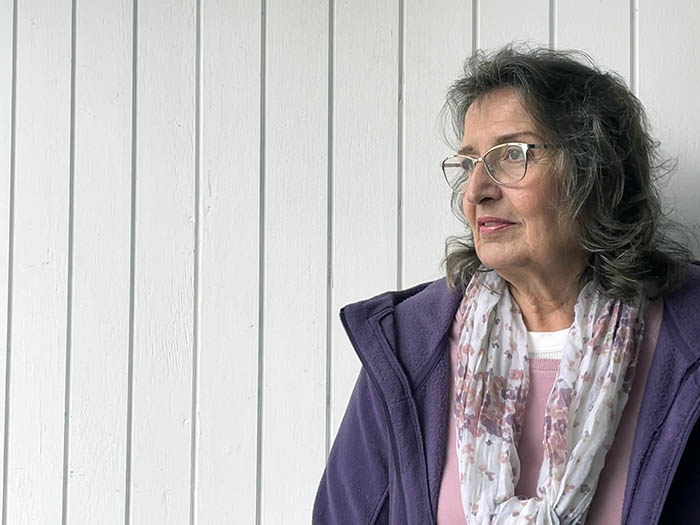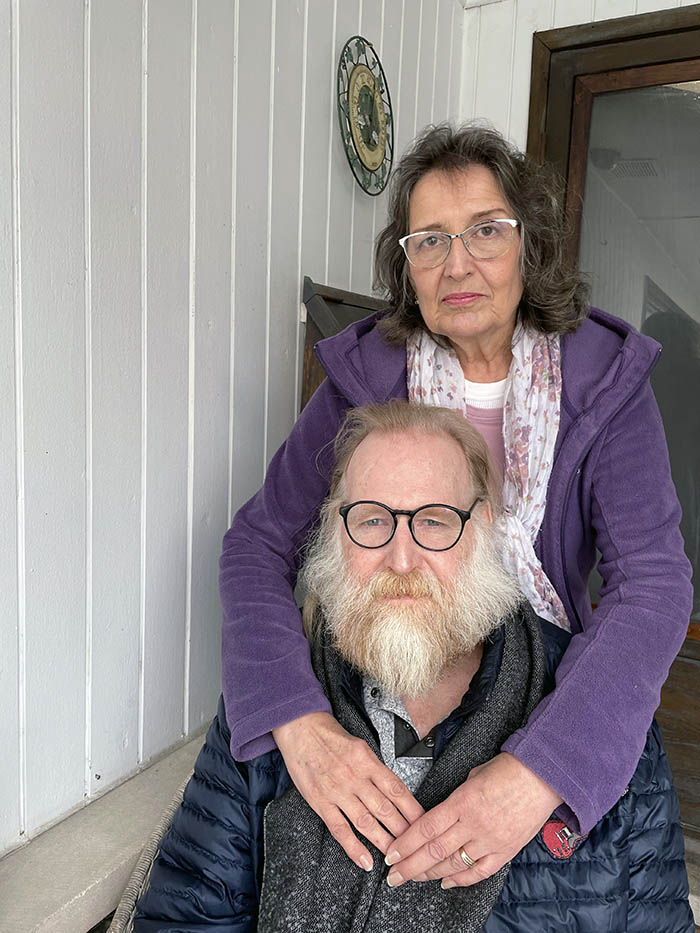

Rose Wiley stopped working as a hospital MRI tech more than a year ago, but she still has dreams about it. In them Wiley hears “codes,” the overhead pages that alert hospital staff to a patient emergency.
“I can still hear that in my head,” Wiley said. “These were special respiratory codes overhead, and it was hard to concentrate because you heard them and you knew it was COVID patients. It was traumatic to hear those respiratory codes all the time.”
This would have been Wiley’s 39th year working as an MRI tech for UChicago Medicine Ingalls Memorial Hospital. The longtime Homewood resident continued to care for patients throughout the pandemic before catching COVID and becoming so ill she was forced to quit.
Instead of continuing the work she loved and retiring on her own timeline, the Homewood resident became disabled. Wiley is now a COVID long-hauler, living with crushing fatigue and a chronic heart arrhythmia.
“My heart was broken by COVID, metaphorically and truly,” Wiley said.
Putting in ‘500%’

Although UChicago, like most hospitals, temporarily suspended non-emergency procedures during the first COVID surge, Wiley said she remained busy in the MRI department. Now however, one favorite aspect of her job — seeing different patients all day — put her at increased risk of contracting the virus.
“There’s no portable MRI system, so patients were coming to us,” Wiley said. “We had extensive exposure to COVID patients all through 2020.”
Isolated in her work, Wiley said she often felt lonely and helpless, but she soldiered on. Despite the excruciating circumstances, she said the hospital provided plenty of personal protective equipment and her coworkers stayed committed.
“All of us were putting in 500% and working 12-hour shifts. Health care workers take an oath to work in those situations. We’re built for it,” she said. “This was a once-in-a-century type of thing. There are so many people I worked with who are true heroes, who are still there now.”
Gratitude bouquets and angry politics
While managing the local effects of a global pandemic, health care workers also became targets of scornful patients who rejected the truth about COVID-19. Wiley said she’s saddened by the way political discourse during the pandemic’s peak “fogged so much of the science.”
“I had patients who, because of political affiliations, spit at me, refused to put a mask on. We all had to deal with people who didn’t want to grasp the situation that was going on. They didn’t want to be careful,” Wiley said. “For me, it was sad we had to fight against that (in addition to) the stress of our job.”
There were expressions of gratitude from the community, as well. Like many of her coworkers, Wiley was sometimes redirected to assist in other areas of the hospital. One day while taking temperatures at the front desk with a colleague, a woman walked in and handed them each a bouquet of flowers.
More than two years into the pandemic, Wiley said she understands that the free meals and floral bouquets have faded away. What she hopes remains is a new appreciation of health care workers.
“People have to be respectful of (health care workers) who take so much on,” Wiley said. “They’re not there for the money. They don’t have to do what they’re doing. They don’t have to risk their family’s health or their health. We all chose to be there.”
Reflecting on illness, emotion and service
In October 2020, Wiley became sick with what doctors believe was COVID. She suffered a fever for five weeks, unable to walk or function for months.
The virus damaged her heart, and Wiley said she feels 10 years older. She struggles to complete activities that were no problem two years ago, and she’s only starting to come to terms with the emotional toll. It took her a while to confide in her husband, Terrance.
“I couldn’t really talk about it for six months,” Wiley said. “I didn’t know how to process what I went through. Everyone at the hospital must feel like that.”
She thinks it will take a while for health care workers to recover from the anxiety and trauma of working through the pandemic. Though they can push it aside to get the job done, that stress compounds and catches up, Wiley said.
If anything good happened during COVID, Wiley said she’s glad people appreciate one another more. She personally takes time to thank public service workers such as her mailman, calling it a profound act that “shines on our humanity.”
Despite her experiences and ongoing health problems, Wiley said she harbors no resentment about working during the COVID-19 pandemic.
“What keeps me going is that I know I answered the call,” she said. “I know I was there for the patients who needed me, as so many others are today. I feel a sense of comfort in that. We’re all going to be OK.”
Health & Wellness 2022 stories

